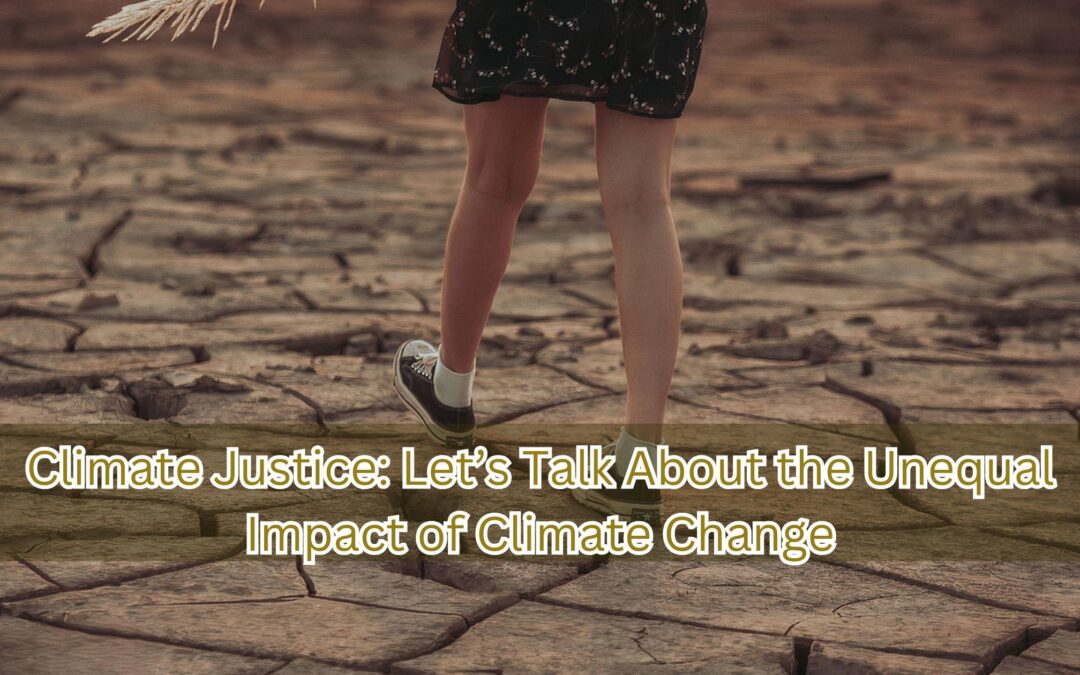We need to talk about climate justice. Climate change isn’t just about melting ice caps or rising temperatures—it’s about people, fairness, and survival. And here’s the truth: even though climate change affects all of us, it doesn’t affect us equally.
Let’s break this down.
Why Climate Change Is a Justice Issue
Here’s the deal. The richest countries and industries have pumped the most greenhouse gases into our atmosphere. For decades, they’ve burned fossil fuels to power factories, cars, and economies. But who’s paying the highest price today? Not them.
It’s low-income communities, indigenous peoples, women, and developing countries who are being hit the hardest. They’re facing floods, droughts, food shortages, and rising sea levels. Many of them contributed the least to the problem—but they’re living in its worst reality.
That’s why we need climate justice. It’s about fairness. It’s about holding those most responsible accountable and supporting those most affected.
What Is Climate Justice?
Climate justice is a movement that focuses on the social and moral side of climate change. It says, “Hey, let’s not just cut emissions—we need to fix the imbalance, too.”
At the heart of it, climate justice means:
- Recognizing the historical role of wealthy nations in causing the crisis.
- Protecting the rights of vulnerable people and communities.
- Making sure everyone has a voice in climate decisions.
It’s about listening to people who are usually left out—like local farmers, island nations, and young activists—because they have the knowledge and the right to shape solutions.
Learn more about how indigenous knowledge can help solve the climate crisis.

How Can We Achieve Climate Justice?
Here are four things we can do right now:
1. Include the Most Affected in Climate Decisions
People on the front lines of climate change need a seat at the table. That means indigenous groups, small farmers, and low-income neighborhoods—they all must be heard and respected.
2. Provide Fair Climate Funding
Wealthy nations promised to provide $100 billion per year to help developing countries respond to climate change. That promise needs to be kept—and expanded. The money should support things like:
Read more about climate finance and the $100 billion goal.
3. Use the Power of Laws and Movements
People around the world are already fighting for climate justice. From lawsuits against polluters to community protests, change is happening. Grassroots activism and legal action are powerful tools for real accountability.
4. Build Global Solidarity
We’re in this together. Climate justice means richer countries need to stand with poorer ones, not just with money, but with real support and cooperation.
Why This Matters to You
You might be wondering, “What can I do about something this big?” The answer: plenty.
Climate justice starts with awareness and leads to action. Talk about it. Support policies and leaders that take climate equity seriously. Listen to frontline communities. And get involved however you can.
Want to learn more? Visit the EAT Community—a place where you can connect with environmental experts, explore practical solutions, and join the movement for a better planet.
Let’s Make Justice Part of the Climate Conversation
This isn’t just about carbon emissions. It’s about fairness, dignity, and survival for everyone on this planet. Climate justice asks us to care not just about the Earth, but also about each other.
Take action. Get informed. Be a voice for justice.
References
- Climate Change and Its Impact on Agriculture and Global Food Security
- Empowering Change: How Education Fuels Environmental Awareness and Action
- UN Climate Change – What is Climate Justice?
- OECD – Climate Finance and the $100 Billion Goal
- World Resources Institute – Climate Justice and Equity
- UNDP – Why Climate Justice Matters
- Carbon Brief – Historical Responsibility for Climate Change
- IPCC AR6 – Impacts, Adaptation and Vulnerability
- EAT Community – Ecolonomic Learning and Action



